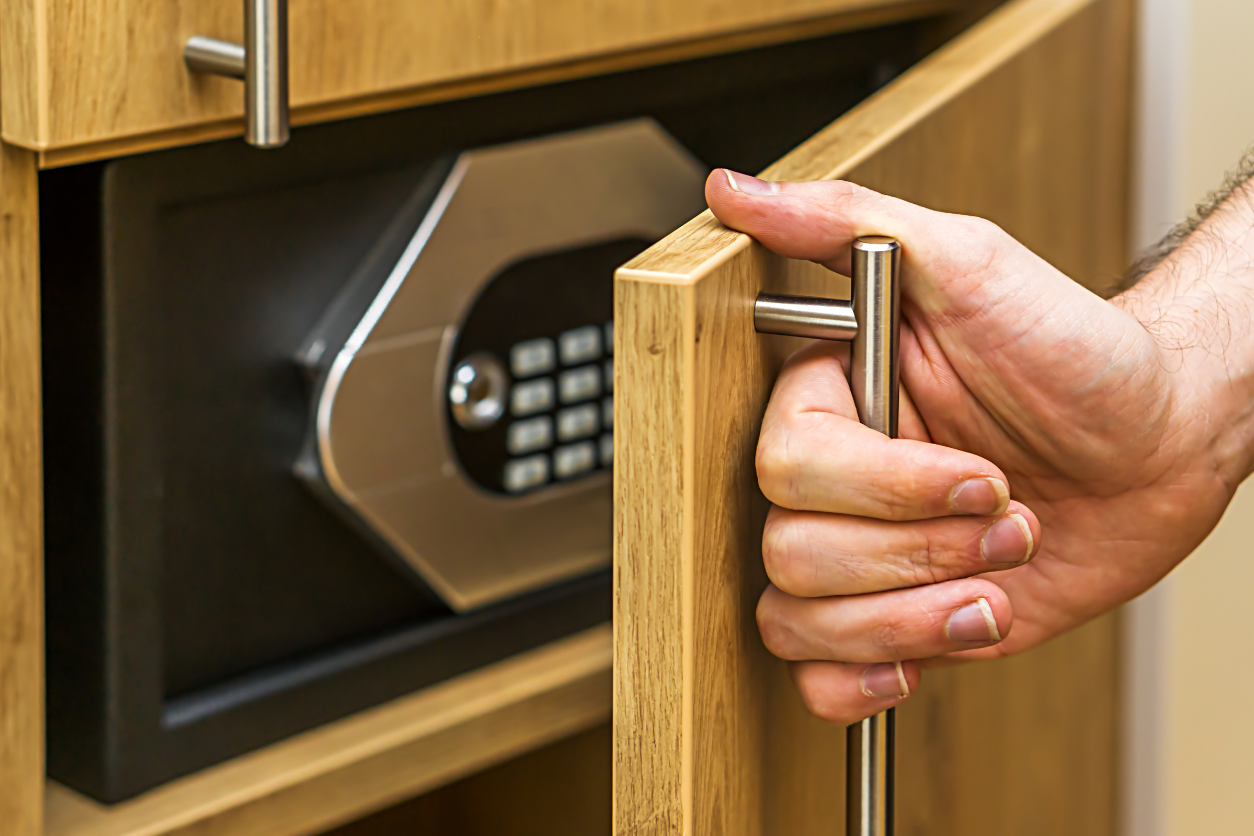What Should I Keep in My Safe at Home?

When it comes to securing your personal assets, there are really only two ways to go about things. You can either get a fireproof gun safe for your home or subscribe to a safety deposit box at your local bank or credit union.
Today, we’ll take you through a comprehensive guide to safeguarding your valuables. We’ll detail the type of assets you should keep in your safe at home and explain why other valuables are better stashed in a bank deposit box.
So, without any further ado, let’s dive right in!
What Items Should Go in a Home Safe?
As a general rule of thumb, your home safe should contain assets you’d need ready access to. Also, these assets should be of value to you but not to a thief. Confused? Well, here are some examples:
Important documents
From the original copies of your social security card and birth certificates to passports and inheritance paperwork, you should keep the key legal documents of your family in a gun safe at home. Replacing these documents can be a hassle and you may need ready access to them in the case of an emergency. This ready access can’t be offered to you by a 9-5 bank.
Some valuables
A little cash and everyday jewelry must also be stashed in your home safe. The latter may include any expensive watches, necklaces, or rings. As far as cash goes, a good rule of thumb is to store an amount enough to cover the bare necessary expenses of your house for two months. Coming up with a figure for this should be easy if you regularly budget and record your household expenses.
Memorabilia
Perhaps the most irreplaceable asset at your home is the memorabilia that reflects special family moments. Since storing physical photographs can take too much space, we recommend scanning all family photos and transferring them to a hard drive. Place this hard drive into a resealable plastic bag for safety and stash it in your gun safe for the ultimate protection.
What Should You Not Put in a Safe at Home?
Here are four types of items that are better suited for a bank account or safety deposit box:
Miscellaneous valuables
From expensive jewelry and valuable family heirlooms to antiques and collectibles, all miscellaneous valuables should be placed under the safety of a deposit box at the bank. Make sure the keys to this box are placed in your home safe.
Large sums of cash
You can’t insure the cash placed in a safety deposit box. FDIC insurance is only good for the bucks deposited in a bank account, so don’t make the mistake of accumulating cash in a bank safe deposit box.
Other important documents
Property and vehicle documents, like deeds, mortgage paperwork, titles, and insurance policies must also be stored in a safety deposit box at the bank. As far as financial documents go, consider safeguarding all the certificates of your stocks, deposits, and bonds in a safe deposit box as well.
Final Thoughts
Adulting is tough. Along with creating assets, you must also make sure your hard work is safeguarded. A home safe is a great way to go about this. Just make sure the safe you opt for is readily accessible and anchored to a wall or floor for added protection.
In this article, we took you through a complete 101 of safeguarding valuables in a home safe. We also took you through the valuables that must not be stored at home. We hope this helped answer all your questions!
Decades of Combined Expertise
Best Buy Guidebook is a culmination of online publishing lessons learned. From SEO to paid ads, our team has experienced the highest of highs and the lowest of lows. Our goal now is simple: Arm readers with the most information possible.
